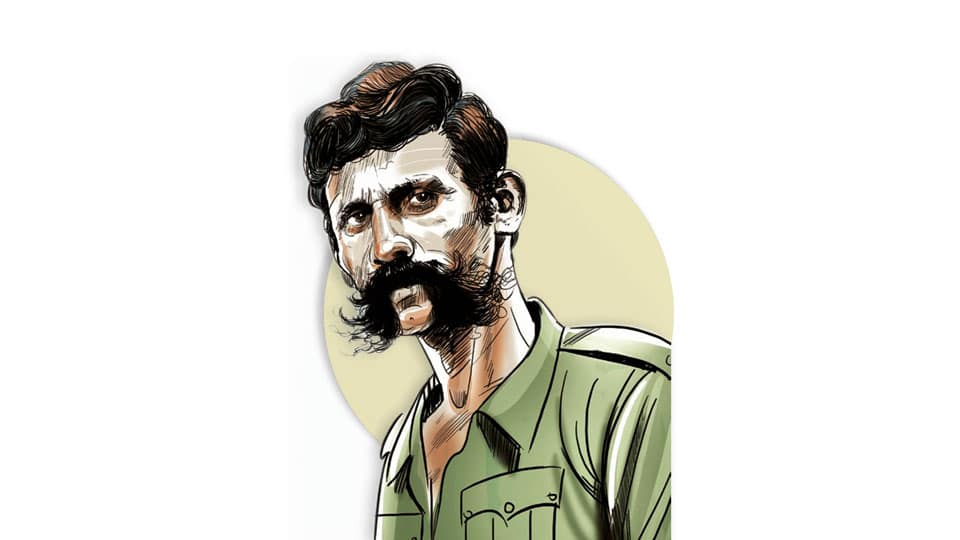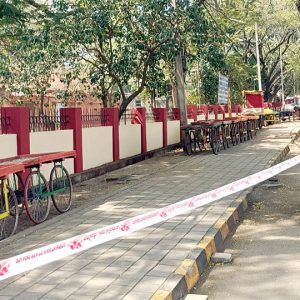
In most nations, when a good citizen sees a Policeman it arouses a sense of security; here it arouses fear and distrust — Mumbai Police have shown why. The Mumbai Police might have destroyed the Mumbai underworld but then a new one was born… born from amongst its own ranks.
This is not just a Mumbai problem, it’s a national issue. That is why today good people who are supposed to love and trust the Police fear them the most, while the bad people who are supposed to fear the Police love them the most!
What is most ironic about the Mumbai Police case is that one of the Police Officers, who was asked to collect hafta, was an Assistant Commissioner of Police (ACP) in the “Social Service Branch” of the Police Department. What a tragedy.
It is no surprise then that the Bengaluru-based ‘Janaagraha Centre for Citizenship and Democracy’ in its 2013 survey reported that on average an Indian pays a bribe of about Rs. 26,932 in a year! The top bribed cities — Delhi, Chennai, Mumbai, Bengaluru and Kolkata. And the Department that gets the most bribes — The Police.
In India, they say we have two economies — an organised sector and an unorganised sector. But there is a third — the bribe economy. This third one is where the maximum black money is. India’s black money is hidden in the land banks and lockers of Indian Government servants, not in Swiss banks and lockers.
Corruption and black money cannot be fixed by demonetisation; it has to be fixed with the fear of law and punishment. If BJP is really a nationalist party, as it claims to be, then let it put in place laws that prosecute erring Government officials, after all, the most common issue of all Indians is corruption. But …
In 2015, the Government proposed amendments to the Prevention of Corruption Act. This amendment Bill, instead of making it easy for victims of bribe demands, increases the burden of proof on them for punishing the corrupt!
Worse, the investigating agencies have been barred from even initiating an inquiry into allegations of corruption without prior approval from the Government! How will a boss approve the investigation of his junior staff who is his collector?!
Even the law to deal with petty corruption, the Grievance Redress Bill, 2011 which had lapsed with the dissolution of the Lok Sabha in 2014, has not been re-introduced… unless the BJP plans to re-brand it and re-introduce it as their own idea in 2024 like they did with 19 other Congress schemes in 2014 from Swachh Bharat Abhiyan (called Nirmal Bharat Abhiyan under Congress) to Beti Bachao, Beti Padhao Yojana (called National Girl Child Day programmes under Congress).
This inaction by successive Governments has emboldened corrupt officials and today they feel they are entitled to it — bribe!
So addicted are Government officials to bribes that it has become second nature to them. They did not even spare Veerappan! Yes, even the feared forest brigand had to pay up. Here is the story of that incident as narrated by the much-awarded and admired Mysuru-based wildlife photographers Krupakar and Senani in their book “Birds, Beasts and Bandits: 14 Days with Veerappan.” The book is about the time they spent with Veerappan after they were kidnapped by the brigand. In the book Krupakar writes:
I had read that Veerappan had extracted a ransom of Rs. 3 crore for a kidnap some years ago. I asked him if this was true. He sat thinking for a while and exclaimed, ‘Oh, you are talking about that kidnap, aren’t you? I had captured a Government official and asked for a ransom of three crore. The Government almost yielded.’ He then told his story:
‘How were they to get the money across to me? Where? When? We struck a deal. There’s this little village in the middle of the forest. A four-mile road connects it. The man bringing the money had to wear a white shirt and come on a motorbike at ten in the morning. He had to go up and down the road several times. We had secretly agreed that we would stop him somewhere along the road and collect the money. On the said day I was waiting. Many hours passed. But there was no sign of the motorbike.
We were hiding behind the bushes with loaded rifles to ambush the Police in case they raided us. After some twenty minutes, we heard a sound. I cocked my rifle, and peeped through the bushes. A cyclist, with four pots of water, was going towards the village. He was pushing his cycle up the narrow road. He wore a faded dhoti and banian, and had tied a towel around his head to protect himself from the sun. I observed him closely.
If he had been a villager, he would have hurried to reach home. But this man’s eyes were darting this way and that, and scanning the trees and bushes along the way. That moment I realised he was no villager, but a Policeman in disguise. He was trying to gather information dressed up as a farmer. But they cannot fool me so easily. I know their brains even better than they do.’
‘What happened next, Veerappan?’ I asked. ‘What else? As soon as he was close enough, I pounced on him with my rifle. He was so frightened he left the bicycle and ran at lightning speed. He must have imagined I was chasing him. In his haste, he didn’t even notice that his dhoti had fallen off. He ran in his shorts. The pots crashed from the cycle, and all the water flowed on the road,’ he said. Veerappan’s boys clapped and laughed loudly at this point. He joined them.
‘So what happened to the three crore you had to get?’ I asked. He explained, ‘Hang on, I’ll tell you. Two hours later, we heard a motorbike approaching. I looked closely at the rider. It was evident he had brought the money. Before he could do another round, I showed myself. He parked the bike to one side, saluted me, and stood by respectfully. ‘Where are you from?’ I asked. ‘Coimbatore. Collector’s office, Sir,’ he said. ‘What do you do?’ ‘Second division clerk.’ ‘All right, where’s the money?’ I asked. He untied a bag from the handle of the bike, and turned towards me. ‘Ey, stand away. Walk twenty meters, and throw all the money on to the road,’ I said. ‘What if they had sent a bomb in the bag? You never know how these rogues’ minds work.’
Our men later bundled the money into another bag. There was just three lakh. ‘Where’s the rest?’ I said, angrily. ‘Sir, this is the amount they gave me,’ he said, and stood his ground. ‘All right, you carry on,’ I said. He didn’t move. ‘You can go,’ I ordered. He continued standing. ‘I was taken aback. People run the moment they see Veerappan. But here I was telling this man to get lost, and he was still standing around.’
‘What else?’ I asked loudly. ‘He bent forward, scratching his head with his left hand, and said, ‘Nothing for me, sir?’ ‘I gave him ten thousand, to rid myself of his wretched presence.’
Krupakar then writes, ‘Even Veerappan couldn’t escape paying a bribe!’ and then adds his friend and colleague Senani’s reaction: ‘Krupa, is there any bravery award given out by the Government that’s bigger than the Param Vir Chakra?’ ‘Why, do you want to recommend one for Veerappan?’ I asked. ‘No, for the clerk from the Collector’s office!” said Senani.
Unfortunately, while Veerappan killed many innocent officers, he didn’t think of eliminating this clerk. Had he done so, may be many poor people would have been spared of this corrupt clerk’s harassment. But then, when it comes to Government officials the next one, usually, is no better than the previous one like Hydra, the monstrous serpent from Greek mythology.
It is obvious we need protection from our so-called protectors. The rot is undoubtedly deep, but if the Government does not punish officers and politicians who are caught red-handed, then the public will.
There are already signs that the public are frustrated and emboldened. The case of Police being attacked even in a docile city like Mysuru and the murder of a Government clerk in Navi Mumbai for demanding too much bribe, are signs that if the Government cannot punish bad officials, then sooner rather than later, the public will.
e-mail: [email protected]








Recent Comments